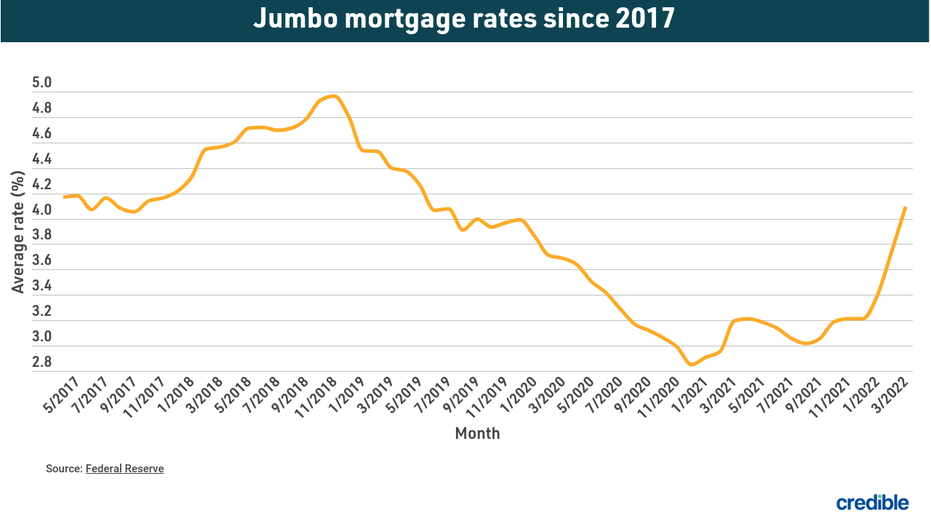Is a Jumbo Loan Right for You? Check out the Conveniences and Requirements
Exploring the Conveniences and Qualities of Jumbo Loans for Your Next Home Acquisition Decision
As the real estate market advances, comprehending the complexities of jumbo loans ends up being progressively pertinent for potential homebuyers thinking about high-value residential or commercial properties. To totally appreciate how big car loans can affect your home purchase technique, it is vital to discover their crucial attributes and advantages in better information.
What Is a Jumbo Finance?

Jumbo loans are often utilized by purchasers seeking to buy high-value properties or homes in costly markets. jumbo loan. Provided the larger amounts borrowed, lending institutions commonly impose stricter credit report demands, including greater credit rating, lower debt-to-income ratios, and larger deposits. The rate of interest on big car loans might be a little greater than those on adapting loans, reflecting the increased threat for lending institutions
Furthermore, the authorization procedure for a big financing can be extra lengthy and complicated, as loan providers require considerable paperwork to assess the consumer's monetary security. Understanding these nuances is essential for prospective homeowners considering a big car loan for their property funding needs.
Key Benefits of Jumbo Finances
One considerable benefit of jumbo financings is their capability to finance higher-priced properties that go beyond adhering financing limits. This feature makes them an appealing option for purchasers aiming to acquire high-end homes or homes in high-cost locations where prices normally go beyond conventional lending limits.
Additionally, jumbo financings usually come with adaptable terms and competitive passion prices, permitting customers to tailor their funding to match their special financial situations. jumbo loan. This versatility can consist of choices for variable-rate mortgages (ARMs) or fixed-rate finances, supplying buyers with the capacity to manage their monthly payments according to their preferences
Another advantage is that jumbo financings do not require personal mortgage insurance policy (PMI), which can substantially minimize the general price of the lending. With PMI commonly being a considerable expense for conventional finances with low down repayments, preventing it can result in considerable financial savings gradually.
In addition, consumers of jumbo loans generally have access to greater finance amounts, allowing them to purchase residential properties that satisfy their lifestyle needs. This access empowers purchasers to act decisively in affordable property markets, protecting their preferred homes much more efficiently. On the whole, big finances use important advantages for those looking for to fund premium properties.
Eligibility Requirements for Jumbo Finances
Jumbo finances come with details eligibility needs that prospective customers must meet to safeguard financing for high-value properties. Unlike standard lendings, which have established limitations based on the conforming lending limitations established by government-sponsored entities, big loans go beyond these thresholds, requiring more stringent requirements.

Moreover, big financings usually require a significant deposit, usually varying from 10% to 20% of the acquisition price, relying on the loan provider's plans and the borrower's financial circumstance. Cash reserves are additionally considered, with several lending institutions expecting debtors to have numerous months' well worth of home mortgage repayments readily available. Lastly, thorough documentation of earnings and assets will certainly be required to sustain the financing application. Fulfilling these qualification demands can position customers favorably in securing a jumbo loan for their desired residential property.
Contrasting Jumbo Fundings to Standard Financings
Understanding the differences between standard lendings and jumbo fundings is necessary for property buyers navigating the high-end property market. Jumbo financings go beyond the conforming financing restrictions established by the Federal Real Estate Financing Company (FHFA), which indicates they are not qualified for purchase by Fannie Mae or Freddie Mac. This leads to different underwriting requirements and requirements for borrowers.
On the other hand, standard loans usually follow these limits, permitting for an extra structured approval procedure. Jumbo fundings commonly call for more stringent credit history, bigger deposits, and higher financial reserves. For example, while a traditional funding may need a deposit of as low check as 3% to 5%, jumbo financings usually require a minimum of 10% to 20%.
Rates of interest on big car loans might vary from those of standard fundings, typically being a little higher as a result of the increased threat loan providers think - jumbo loan. The possibility for considerable financing can be useful for customers seeking luxury residential or commercial properties. Eventually, recognizing these differences enables homebuyers to make enlightened choices, aligning their financing choices with their one-of-a-kind investing in needs and financial scenarios
Tips for Safeguarding a Jumbo Financing
Protecting a big financing requires careful planning and preparation, as loan providers usually enforce more stringent needs compared to standard car loans. To improve your possibilities of authorization, start by checking your credit rating and resolving any type of problems. A rating of 700 or greater is commonly favored, as it shows creditworthiness.
Following, collect your economic documents, consisting of tax obligation returns, W-2s, and financial institution statements. Lenders typically call for extensive proof of income and possessions to evaluate your check this capability to pay off the car loan. Preserving a low debt-to-income (DTI) ratio is additionally essential; objective for a DTI below 43% to improve your application's competition.
In addition, think about making a larger deposit. Many lenders look for at the very least 20% down for big car loans, which not only minimizes your loan amount but likewise signals financial security. Involving with an experienced home loan broker can provide invaluable insights right into the process and aid you navigate various lending institution alternatives.

Conclusion
In recap, big lendings present considerable advantages for buyers looking for residential or commercial properties that surpass standard financing limits. With competitive rates of interest, adaptable terms, and the absence of personal home mortgage insurance policy, these loans can lead to substantial expense savings. Potential consumers must navigate stricter eligibility standards to acquire desirable terms. Detailed understanding of both the demands and advantages connected with jumbo financings is important for making educated home acquisition decisions in an affordable actual estate market. article source
The passion rates on jumbo fundings may be slightly higher than those on adjusting lendings, showing the enhanced risk for loan providers.
While a conventional car loan could call for a down settlement of as little as 3% to 5%, big financings normally necessitate a minimum of 10% to 20%.
Passion rates on big loans may vary from those of traditional finances, frequently being slightly greater due to the increased threat loan providers assume.Securing a big finance calls for mindful preparation and prep work, as lending institutions often enforce more stringent needs contrasted to conventional financings. Several loan providers seek at the very least 20% down for jumbo car loans, which not just lowers your financing quantity but also signals financial stability.